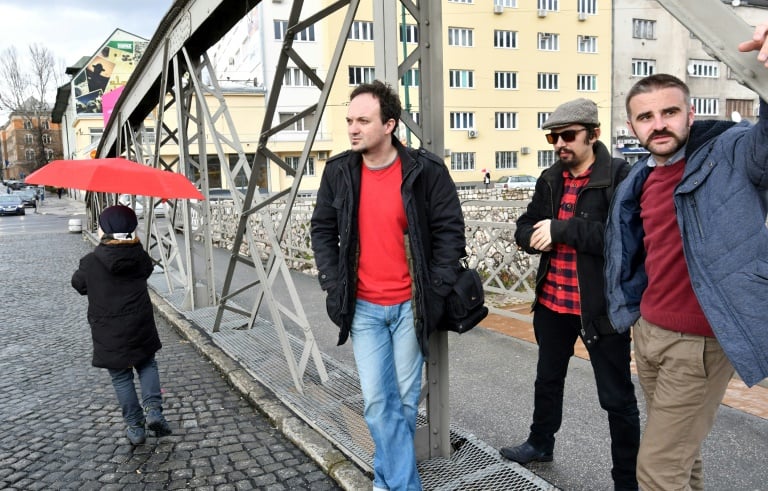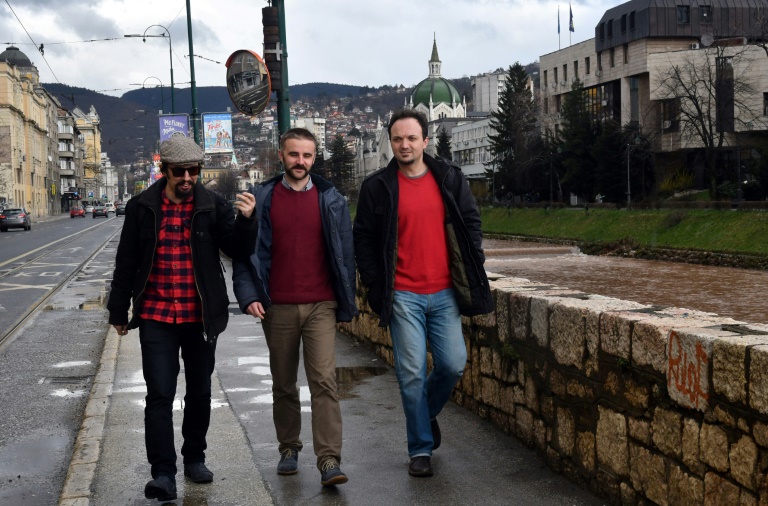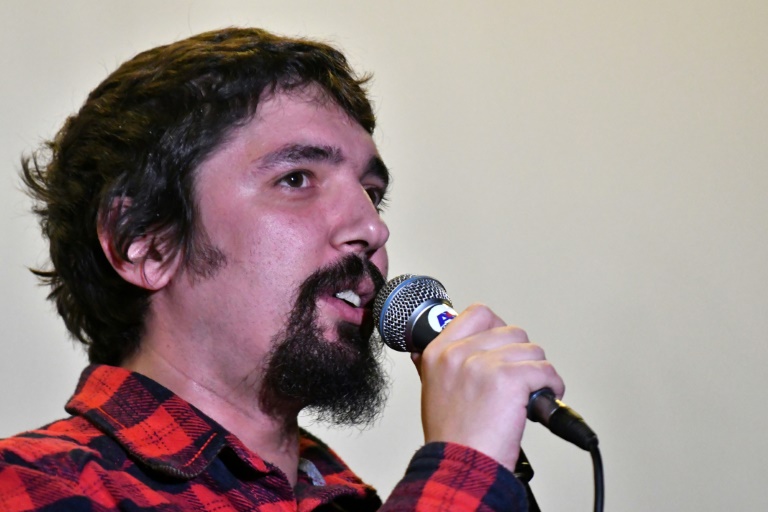WATCH: Steve Hofmeyr releases duet with AI-generated female voice
The band is called Jall Aux Yeux, a linguistic play on the name of a small Bosnian village pronounced in a French accent, and their music is full of references to France.
Thirty-one-year-old Jure Petrovic, who writes the lyrics, is the only one among the band’s seven musicians to speak the language of Moliere.
Singer Sanel Jusic simply memorises the words to the songs phonetically.
“I’m like a blind man and it is Jure who guides me on this road,” the 33-year-old school art teacher told AFP.
“It’s the melody that drives me. French is a beautiful language, complicated but melodious, and I have the impression that it allows me to arouse emotions in the audience,” he said.
Although the French language has lost its footing in Bosnia in recent years, that has not deterred fans from going to performances by the band, which is currently on tour ahead of the release of its debut album.
– Et pourquoi? –
Like most of his band mates, Jusic even struggles to pronounce the name of the band, which was founded in 2016.

Jure Petrovic (R) is the only one of the seven musicians in Bosnian rock band Jall Aux Yeux to speak French. Sanel Jusic (C) is the singer while Adnan Suljanovic is drummer and percussionist
The name Jall Aux Yeux derives from that of a village near the northwestern town of Bihac called Zaluzje, of which Petrovic said he was particularly fond. In Bosnian, the word “zal” (pronounced “jal”) means sorrow.
“Since in our band nobody speaks Chinese, we decided to do it in French,” Petrovic quipped.
In Bosnia, the use and popularity of the French language is decreasing as schools increasingly opt to teach English, German or even Turkish.
In Bihac, a town of 56,000 inhabitants, French is not taught in any school.
So, as a teacher of Latin, history and French, Petrovic has no chance currently of teaching the latter.
He writes the songs in French, he says, so as “not to forget” the language.
– ‘Dose of oxygen’ –
“This band is really cool. I feel like I got a dose of oxygen,” Asja Tiro, a 21-year-old student, who does not speak French, said after their Sarajevo concert in a cinema last month.
Petrovic, also the band’s guitarist, believes the curiosity value of being a Bosnian band singing in French while not actually speaking the language had helped initially to build up a following.

Unable to speak French, singer Sanel Jusic (L) learns the words to the songs of Jall Aux Yeux off by heart and phonetically. The seven-piece band also includes Jure Petrovic (C) and Adnan Suljanovic and plays music influenced by multiple genres
His texts are full of references to French culture and history, such as “The Plague” by Camus, the St. Bartholomew’s Day massacre of French Huguenots in 1572 or Gypsy jazz great Django Reinhardt, who spent most of his life in France.
But they also often echo Bosnia’s violent history.
“What about blood shed in the name of ideals?” sings Jusic.
“What about the mother without her children, what about children without their parents? I wash my hands of the matter, but they are covered with blood.”
In another song, he references the 1947 Albert Camus novel to celebrate the return of peace: “The bacillus is gone, the plague is gone,” he sings.
“This is a universal theme… The plague of Bosnia is war, but also society after the war, its inability to move towards the future” in an ethnically divided country, Petrovic told AFP.
Nearly 100,000 people died in the country’s inter-ethnic war in the 1990s.
– ‘Balkan madness, French freedom’ –
Influenced by multiple genres, including jazz, blues, pop-rock, punk as well as Bosnia’s traditional sevdah folk music, the band’s style mixes guitar, bass, drums, trumpet, saxophone and mandolin.

The band’s name Jall Aux Yeux derives from that of a village near the northwestern town of Bihac called Zaluzje. But singer Sanel Jusic, like most of his band mates, struggles to even pronounce the name of the band, founded in 2016
“It’s an organic music, very lively. It is not chained by any rules, it is natural and diverse,” said drummer and percussionist Adnan Suljanovic, 45, an English teacher.
In a country devastated by the 1992-1995 war and later exhausted by more than 20 years of inter-ethnic disputes, the musicians — all teachers with one exception — want to convey “joy” and “optimism,” said Suljanovic.
“With a bit of our Balkan madness and French freedom, passing through our literary filter pushed by Jure, we arrive at something rather nice,” he said.